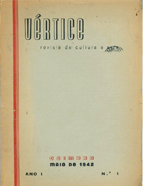

................................
In any case, this separation between the civic and scientific strands should not be overemphasised. In the pages of Vértice, Piteira Santos also associated his time with the emergence of history as a science, surpassing the artistic and ethical history of the past (no. 50, Sept. 1947, 356-66). In the 1990s, in response to an article in which Borges de Macedo criticised Marxist historiography (Jornal de Letras, 9 and 12 June 1992), he emphasised, without denying his ideological commitment, the task of ‘constructing a history of scientific rigour’ (JL, no. 524, 21-27 June 1992, 6-7). Joel Serrão also insistently recalled the civic condition of the historian, his irreducible condition as a man of the present time (“Brevíssima reflexão preambular sobre historiografia...” [Very brief preliminary reflection on historiography...], 1982, 9-23). They were also united by the same experience of time, of a prospective nature, in which the present and the future were central to historical construction. Hence, both distanced themselves from a scholarship without interpretation or problematisation that linked it to the present, as well as from a revisionism that seemed to them to be the restoration of the past in the present.
This controversy took place, as mentioned above, during a period of serious controversy and divisions among some of Vértice’s contributors. Throughout the 1950s and 1960s, some of the journal’s most prominent contributors suspended or significantly reduced their presence, often in political and party break with Marxist-Leninist ideology. Among the historians, the cases of Borges de Macedo (who abandoned his collaboration in 1955), Joel Serrão and Piteira Santos (both in 1957, only returning sporadically many years later) and António José Saraiva (in 1965) stand out. Even so, others continued to contribute more or less frequently, such as Armando Castro, Óscar Lopes and Luís de Albuquerque. The latter’s contribution should be highlighted for his dedication to Vértice, where he published dozens of articles, not only on the history of education and the Discoveries, but also on other subjects that demonstrated the breadth of his scientific, cultural and civic interests. Between 1948 and 1953, he held the position of editorial secretary of the journal, contributing under various pseudonyms to the regular functioning of the publication.
This work is financed by national funds through FCT - Foundation for Science and Technology, I.P, in the scope of the projects UIDB/04311/2020 and UIDP/04311/2020.
